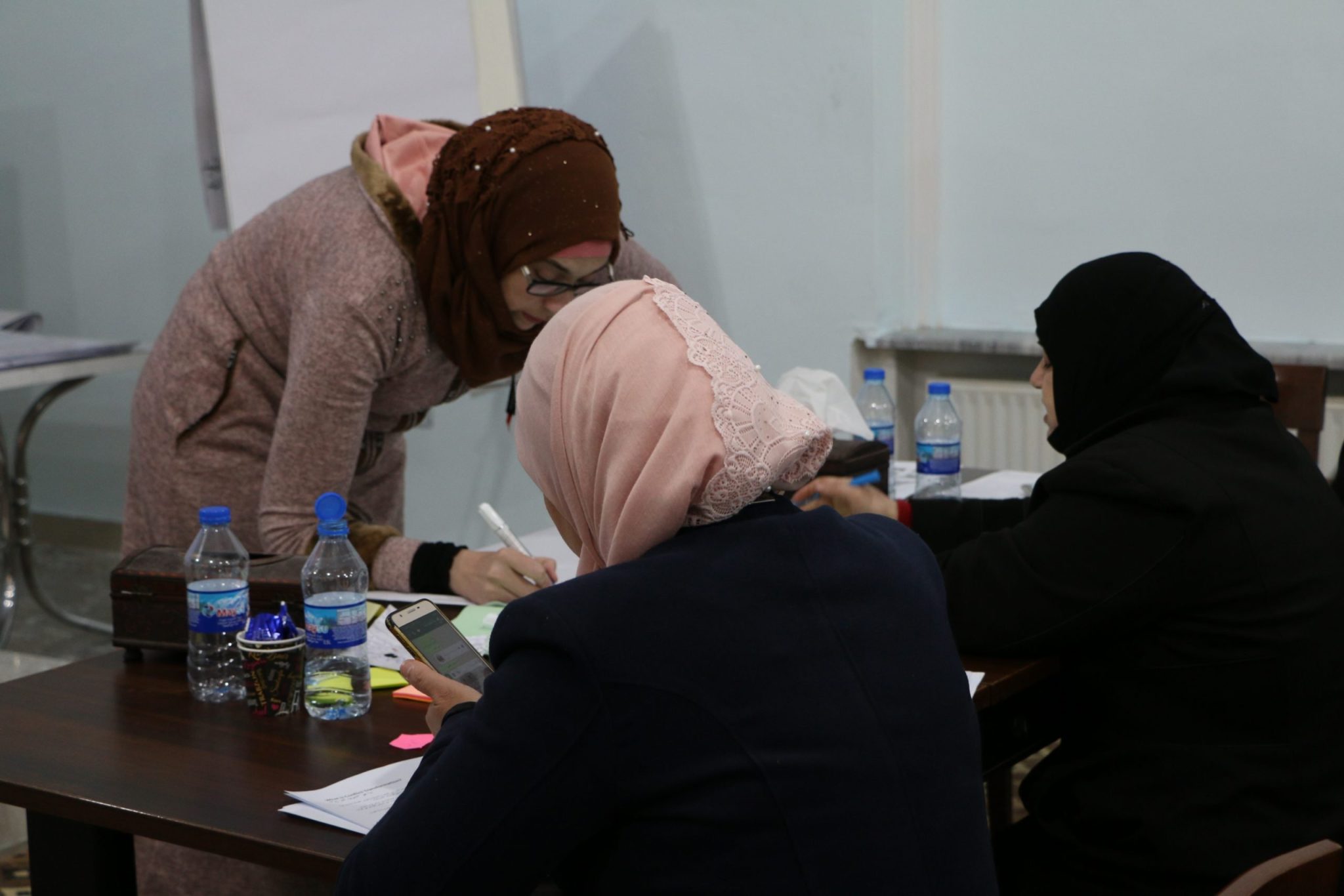Real impact or just a formal act!
The Syrian woman has played several significant roles in revolution and politics throughout the years of the conflict, which was either direct and field-based, or within the corridors of political and parliamentary, and partisan communities.
Millions of Syrians are still suffering from the conflict’s scourge whether social, economic, health, insecurity, or the threat of being killed or arrested, or displaced. As usual, Syrian women suffered more significantly as from a side they faced the same challenges as men. On the other side, women beard additional burdens as a mother and a wife, and they didn’t obtain their rights completely according to the constitution, society standards, customs, and traditions.
It is clear to everyone the gender-based bias, and challenges facing the woman when she becomes the sole provider for her family after her husband is arrested or even killed, and when she is the only breadwinner for her family while suffering from severe poverty.
That information made Syrian women more careful to participate in the revolution from the beginning of the conflict. So, women engaged in political bodies that serve the revolution’s objectives toward fulfilling Syrian people’s rights and also tried to reach decision-making positions benefiting from the call of the United Nations to recognize women’s representation in political life.
Challenges facing Syrian women in the field of politics.
Despite several attempts. Syrian women faced many challenges which mostly still, including:
- Some Syrian women believe that their participation in politics would be ineffective, as engaged women cadres within the political formations are usually chosen by decision-makers, just to fill the void or quorum.
- Even with the participation of Syrian women in the political bodies and committees, they never reached leadership roles for any committee.
- The absence of any coordination or organizing for communities or institutions working under the name of civil or feminist society.
- Relying on the quota and consensus in negotiations more than relying on capacities, affected directly qualified women’s participation.
- Stereotyping of roles spread in several cases, resulting in keeping the women trapped in certain tasks to fulfill, but never allowed to perform efficiently in other tasks.
- Many feminist formations which were established with the encouragement of the international community, were declared rapidly without any solid managerial basis, resulting in the possibility to collapse or inefficiency.
- The masculine culture’s supremacy within the Syrian society and politicians means recognizing women as a representative necessity for a missing ratio, instead of being the result of real conviction about the importance of women’s participation.
Women continue to attempt despite these challenges. They obtained a representative ratio of 30% in the constitutional committee, but other ratios in the parliament and local administration councils are still low between 3 and 10% at best.
Why it’s essential to increase women’s role in political life and peacemaking?
It would be very incomplete and truly unfair to consider peacemaking and future planning as restricted to men. Thus, Women will be stuck instead of fulfilling basic cases in society.
In this sense, women wouldn’t obtain their complete rights or their major role recognition, also they wouldn’t be capable to invest as men are the only planning and executing party. We cannot imagine a stable future for the whole society by its half is not represented!
The absence of women’s effective role will result in many troubles and fractures in the future. Moreover, this could weaken their rights regarding political formations’ outputs would affect all Syrian males and females.
Recommendations to overcome the crisis.
Responding to all previously mentioned facts, reform must come out from the society’s conviction over all its segments with the importance of representing women in political life.
The feminist movement shall improve its institutions and performance, while political formations must accommodate qualified and experienced women with popularity and political weight inside Syria and in refugee regions and camps.
It’s equally important to develop women-oriented programs, to contribute effectively to achieving tangible results on the ground.
MIDMAR supports the empowerment of Syrian women’s participation in political life.
We’re adopting previous recommendations in “MIDMAR” as a developmental institution in all of our programs implemented.
As we believe extremely that societies can lead the change on their own, we’ve worked over years and particularly in 2021 to allocate women’s empowerment programs, toward making them capable of purposeful political participation in the peacemaking process and raising the society’s voice.
We provided Syrian women with suitable instruments to expand their influence within our programs, and what it takes to shift from regular living at home and in local society into participation in the level of political life.
More efforts must be done to protect the Syrian society with all its segments. Support the implementation of negotiation results. Thus, women’s effective participation in implementing peace agreements could be ensured.
We have revealed – from experience – the extent of the weakness of qualified Syrian cadres to handle major issues, especially among women. Not to mention that conflicts resulted in a class division within the political representation, especially in terms of the view about women.
Through effective programs, “Our organization” tried to enhance reaching out to certain cadres representing women quantitative and qualitative, and raise social and political awareness for the whole society about the importance of women’s political participation.
Dozens of women, trainers, and experts have joined us already. Women have attended an educational journey consisting of 120 hours, which was implanted in our last program in 2021 aiming to fulfill tangible results on the ground.
Furthermore, the “Midmar’ within its own “Enhancing women’s participation in the peace process in Syria” program is still working on enhancing the information available related to different needs, priorities, and expectations for the peace process. Also, we aimed to enhance women’s ability to effectively participate through traditional and junior feminist leaders. In addition, we’ve worked on achieving more cooperation between Syrian women inside Syria and outside, particularly in Turkey and Lebanon.
As the Syrian revolution brought hope for Syrians to build a better society despite the heavy price they have paid. Similarly, women now are keeping their own ambitions to find a better position within political life, which affects all sides of life. It’s insane that the regime and opposition in Syria disagree on everything but agree on the women’s exclusion!


